Ten years ago, I frequently traveling to China for work, and found myself in Beijing during the week of the twentieth anniversary of the protests and massacre in Tiananmen Square in Beijing. As the thirtieth anniversary is upon us, it seems a good opportunity to look back at that experience.
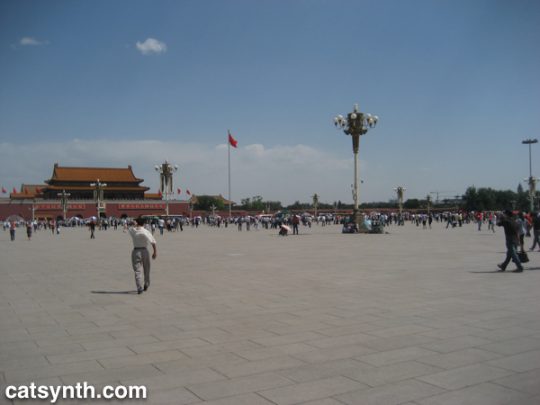
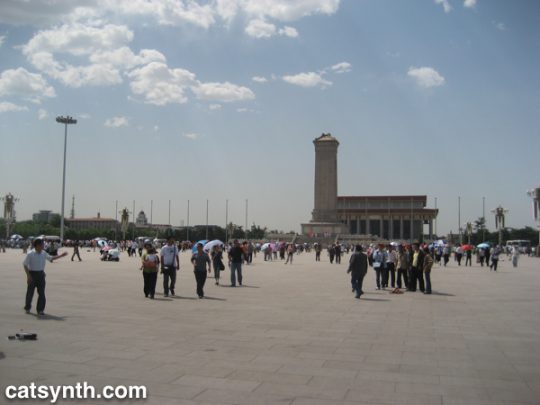
Tiananmen Square is a YUGE space, mostly empty. It is bounded on the north by the Tiananmen Gate to the Forbidden City. On one side is the Palace of the Republic, the seat of the Chinese government, on the other is another imposing government building that I’m pretty sure was the culture ministry. To the south, before several temples, is the imposing tomb of Mao Zedong.
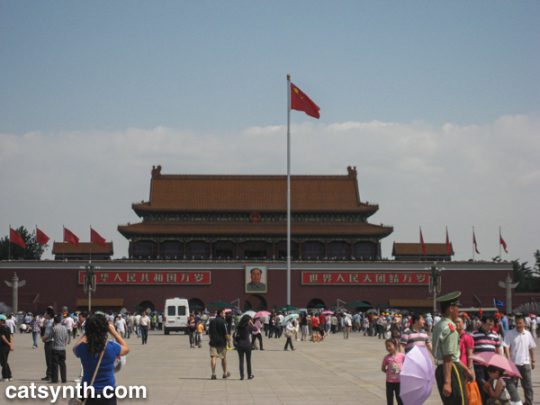
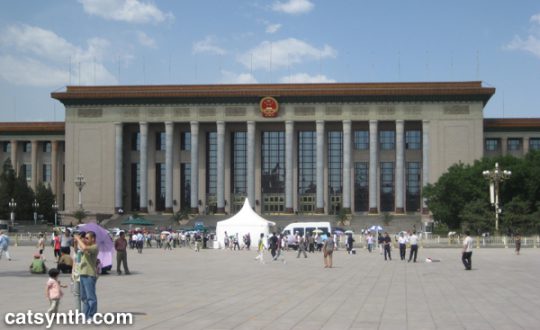
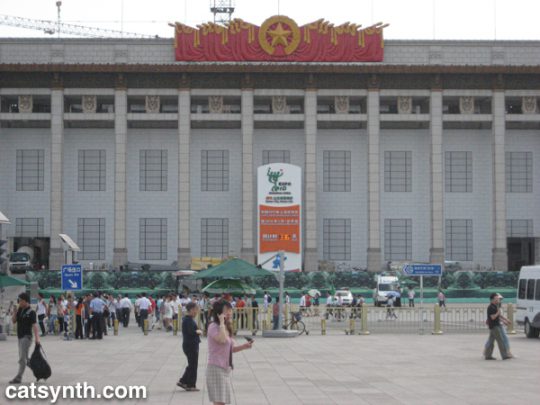
What was most notable was how ordinary things were, just a mixture of Beijingers and tourists wandering about like any other day. Indeed the most subversive thing I saw during that visit was my own photo with our mascot in front of Mao’s portrait.
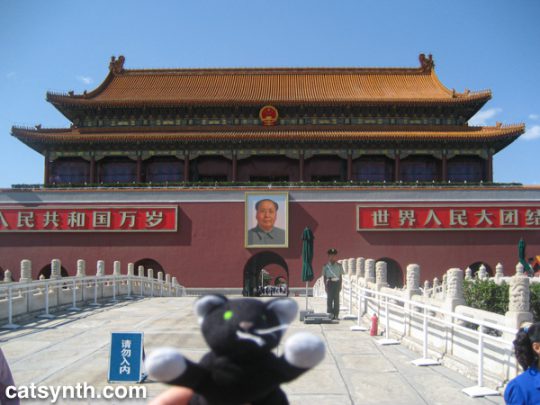
There was almost no mention of the anniversary in any media. The big story around town seemed to be the preparations for Expro 2010 in Shanghai. One English-language newspaper had an article about the “last of the 1989 hooligans” being released from prison, but that was about it. My colleagues, who are younger and would have been small children at the time, barely even knew about it except as rumors. One did check out a video via internet tunneling and was shocked to know that her country could have done something like that – but she did accept that it was true.
It’s hard to say if my experience of young Chinese encountering Tiananmen Square as we know it is at all representative, as my friends and colleagues tended to be more educated, cosmopolitan, and a bit jaded. Indeed, one young woman from the more conservative countryside whom I befriended in Suzhou on that same trip seemed to be less cynical and more toeing the party line about respect for authority (and reverence for Mao). I suspect things are even tighter and more controlled now, given the current Chinese leadership under Xi Jinping. Only time will tell how the country comes to reckon with this particular chapter of its past.
